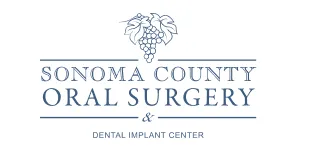Wisdom teeth, also known as third molars, typically begin to emerge in the late teens and early 20s. While some patients experience no issues, others may develop complications due to lack of space or improper positioning. At Sonoma County Oral Surgery & Dental, we specialize in evaluating and removing problematic wisdom teeth before they compromise your long-term oral health.
When Should Wisdom Teeth Be Removed?
Not every patient needs their wisdom teeth removed, but if they are impacted, partially erupted or crowding other teeth, extraction is often recommended. Early removal — ideally in the mid-teen years — can help prevent complications such as infections, cysts and damage to neighboring teeth. Delaying removal until later in life often increases the risk of complications and lengthens recovery time.
Common Issues With Impacted Wisdom Teeth
When wisdom teeth are unable to fully erupt, they can lead to several problems:
- Pericoronitis: A localized gum infection that occurs when tissue becomes inflamed around a partially erupted tooth.
- Cyst Formation: Fluid-filled sacs may develop around the impacted tooth, potentially damaging the jawbone or adjacent teeth.
- Crowding: Wisdom teeth can shift surrounding teeth, even those that were previously aligned with orthodontic treatment.
- Damage to Second Molars: Improper cleaning around wisdom teeth can lead to decay and bone loss in neighboring teeth.
What to Expect on Surgery Day
Wisdom teeth removal is typically an outpatient procedure. Our oral surgeons use advanced imaging to assess the position of your teeth and recommend a treatment plan tailored to your needs. On the day of surgery, you will receive appropriate anesthesia or sedation to ensure your comfort. Our team will monitor you throughout the procedure and provide clear instructions for at-home recovery.
You should arrange for a responsible adult to accompany you and remain with you following the procedure. Aftercare includes rest, hydration and a soft diet. We may prescribe pain medication and antibiotics to help prevent infection and minimize discomfort.
Recovery & Aftercare
Mild swelling and soreness are expected, especially within the first 48 hours. We recommend applying ice packs, avoiding strenuous activity and slowly reintroducing solid foods. Stitches, if needed, are often dissolvable and require no removal. If you experience any unusual symptoms, our team is available to provide prompt care and guidance.
Understanding Costs & Insurance
The cost of wisdom teeth removal depends on the complexity of the case and the type of anesthesia selected. During your consultation, we will provide a personalized estimate and help you navigate your insurance benefits. Most dental insurance plans offer partial coverage for wisdom tooth extractions.
Schedule Your Consultation Today
If you or your child has been advised to consider wisdom teeth removal in Santa Rosa, California, we invite you to call us at 707-566-7300 and schedule a consultation with Dr. Jiries Mogannam, Dr. Vicente Chavez, Dr. Christopher Chow or Dr. William Verlinden. We are committed to your safety, comfort and long-term oral health. Let us help you make an informed decision and experience the highest level of care.
Frequently Asked Questions About Wisdom Teeth Removal
How long does the actual procedure take?
Most wisdom teeth removal procedures take between 45 minutes to one hour, depending on the number of teeth and their position. Your appointment will last longer to allow for preparation and recovery time. Our team ensures each step is performed carefully and efficiently for your safety and comfort.
Can I go back to school or work the next day?
It is best to plan for at least two days of rest following surgery. Most patients return to school or work within three days, depending on how they feel. Strenuous activity should be avoided until fully healed to prevent complications and support a smooth recovery.
What should I avoid eating after surgery?
Avoid hard, crunchy, spicy or hot foods for several days after your procedure. Stick with soft, cool options such as smoothies, yogurt and mashed potatoes. Foods that require minimal chewing are ideal during early recovery to reduce irritation and support healing in the surgical areas.
Is dry socket common, and how can I prevent it?
Dry socket is a temporary but painful condition that can occur when the blood clot at the extraction site becomes dislodged. To reduce your risk, avoid drinking through straws, smoking or vigorous rinsing for several days. Following our post-operative instructions closely will help prevent complications.
What areas do you serve?
We provide wisdom teeth removal in Santa Rosa, California, and to patients in the neighboring areas, including Novato, Petaluma, Rohnert Park, Ukiah, Windsor, Napa County and Sonoma County, California. Call today for more information or to schedule your personal consultation!


